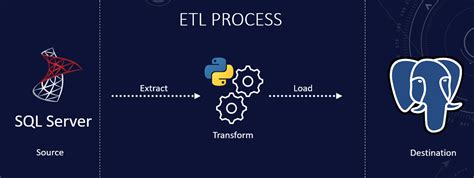In a world where data is king, the call for effective Extract, Transform, Load (ETL) tools has never been louder. The landscape is crowded with numerous ETL solutions, but Amphi stands out as a low-code ETL tool designed specifically for Python environments. This innovative tool promises to simplify the data pipeline creation process by offering a graphical interface, thereby making it accessible to data professionals across varying levels of technical proficiency.
Amphi’s most striking feature is its ability to generate pure Python code, which you can own and deploy anywhere. Unlike traditional ETL tools that often come with the baggage of proprietary languages and vendor lock-ins, Amphi’s generated Python code can be orchestrated through platforms like Airflow, executed in environments such as AWS Lambda, or even run on standalone machines using Modin for scalable data operations. With this level of flexibility, it’s no wonder that data engineers and scientists are singing its praises, particularly those who are already familiar with the JupyterLab ecosystem.
The comparison with existing tools, like Alteryx or Windmill, is inevitable. While Alteryx offers a drag-and-drop interface for data integration tasks, it lacks the open-source transparency that some users crave. On the other hand, Windmill provides a low-code environment for building applications but doesn’t specifically cater to the ETL processes. Amphi fills this gap exceptionally well by allowing users to create ETL pipelines within JupyterLab, leveraging the extensive ecosystem of extensions available. Notably, this includes Git extensions for version control and support for various file systems, such as Amazon S3.
An interesting dimension of Amphi’s appeal lies in its modularity and scalability. Given the increasing complexity and volume of data that modern enterprises deal with, scalability is a crucial factor. Users have expressed a desire for the tool to generate Airflow code directly, and while this isn’t currently a feature, Amphi’s architecture allows for future expansion into this domain. The use of Modin for scalable Pandas operations on a single or multiple machines indicates that the tool is designed with high-performance data transformations in mind.
Critics often argue that going back to low-code ETL solutions feels like a step backwards, citing the significant industry shift towards ETL-as-code alternatives like Airflow and Luigi. However, this argument misses the broader picture. Low-code solutions like Amphi democratize ETL development, offering significant productivity advantages for smaller teams or those with less programming expertise. As one user pointed out, these tools often lack the constraints and scalability issues that plagued earlier low-code offerings.
A common pain point in the industry is the integration of various data sources, especially for enterprises with a mishmash of legacy systems. The commentary around using GUI-based tools like Amphi highlights their intuitive nature in representing complex data workflows. The visual interface allows both technical and non-technical users to understand and manage data flows effectively, a feature particularly useful for large organizations with diverse data needs.
One cannot ignore the skepticism around the broader industry’s ‘AI-washing’ and claims of open-source transparency. Amphi is distributed under the Elastic License v2, which does not meet the standard definition of open-source as per the Open Source Initiative (OSI). This nuance has sparked debates, but it hasn’t dampened the enthusiasm for the tool itself. As with any technology, users are encouraged to scrutinize the licensing terms to fully understand the implications.
Ultimately, the promise of Amphi is that it can bridge the gap between technical complexity and ease of use, making advanced data transformation capabilities accessible to a wider audience. Its ability to handle unstructured data and support for AI pipelines further adds to its utility in modern data engineering tasks. As organizations strive to harness their data for smarter decision-making, tools like Amphi could very well become essential components of their data strategy. Whether you’re a seasoned data engineer looking to simplify your workflow or a business analyst aiming to gain more control over your data transformations, Amphi offers a compelling proposition.
For those interested in exploring Amphi, the tool is available on GitHub and can be integrated as a JupyterLab extension. Its low-code nature reduces the entry barriers, allowing users to create efficient data pipelines without diving deep into complex coding. As the data landscape continues to evolve, tools like Amphi could redefine how we approach ETL processes, making them more inclusive, flexible, and efficient.


Leave a Reply